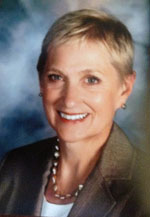Pastors Message – April, 2017

Friends,
Populations of the captivating orange and black monarch butterfly have plummeted in recent years. To help with conservation efforts, scientists have calculated the extinction risks for the eastern migratory population of monarchs, which overwinter in Mexico and migrate up through North America during warm spring and summer months. Their new data suggest that these butterflies have an 11-57% chance of going quasi-extinct if new efforts are not taken to protect them.
Eastern monarch populations have declined by about 80% over the last decade, primarily because of the destruction of important breeding sites inhabited by milkweed in the United States. Monarchs lay their eggs on milkweed, and newly hatched caterpillars feed exclusively on these plants.
The milkweed plant used to be abundant in our fields and along our roadsides. Now those plants are being eradicated as a result of development and by wide spread use of chemical weed killer. At the same time the summer habitat of the Monarch has grown smaller. Illegal logging is claiming more and more of the butterfly’s winter habitat in Mexico.
Climate change further complicates the challenge facing Monarchs. Temperatures above 95 degrees can be lethal for larvae and eggs dry out in hot, arid conditions causing a drastic decrease in hatch rates.
I invite you in this Lenten season, when one of the symbols of the great mystery of resurrection is the butterfly, to pray for this most delicate and lovely gift from our Creator and to raise your voices, that our concerns may be addressed and policies altered.
There is hope. In 1962 Rachel Carson’s book, Silent Spring, led to the banning of DDT and to the saving the of the Bald Eagle, which too was on the road to extinction.
Following is the Environmental Policy of the Presbyterian Church (USA):
“… God’s work in creation is too wonderful, too ancient, too beautiful, too good to be desecrated…Restoring creation is God’s own work in our time, in which God comes both to judge and to restore…”
I leave you with this cautionary note by the poet Mary Oliver titled Watching a Documentary about Polar Bears Trying to Survive on Melting Ice Floe
That God had a plan, I do not doubt.
But what if His plan was, that we would do better?
With God’s help we will do better.
Blessings,
Pastor Beth




